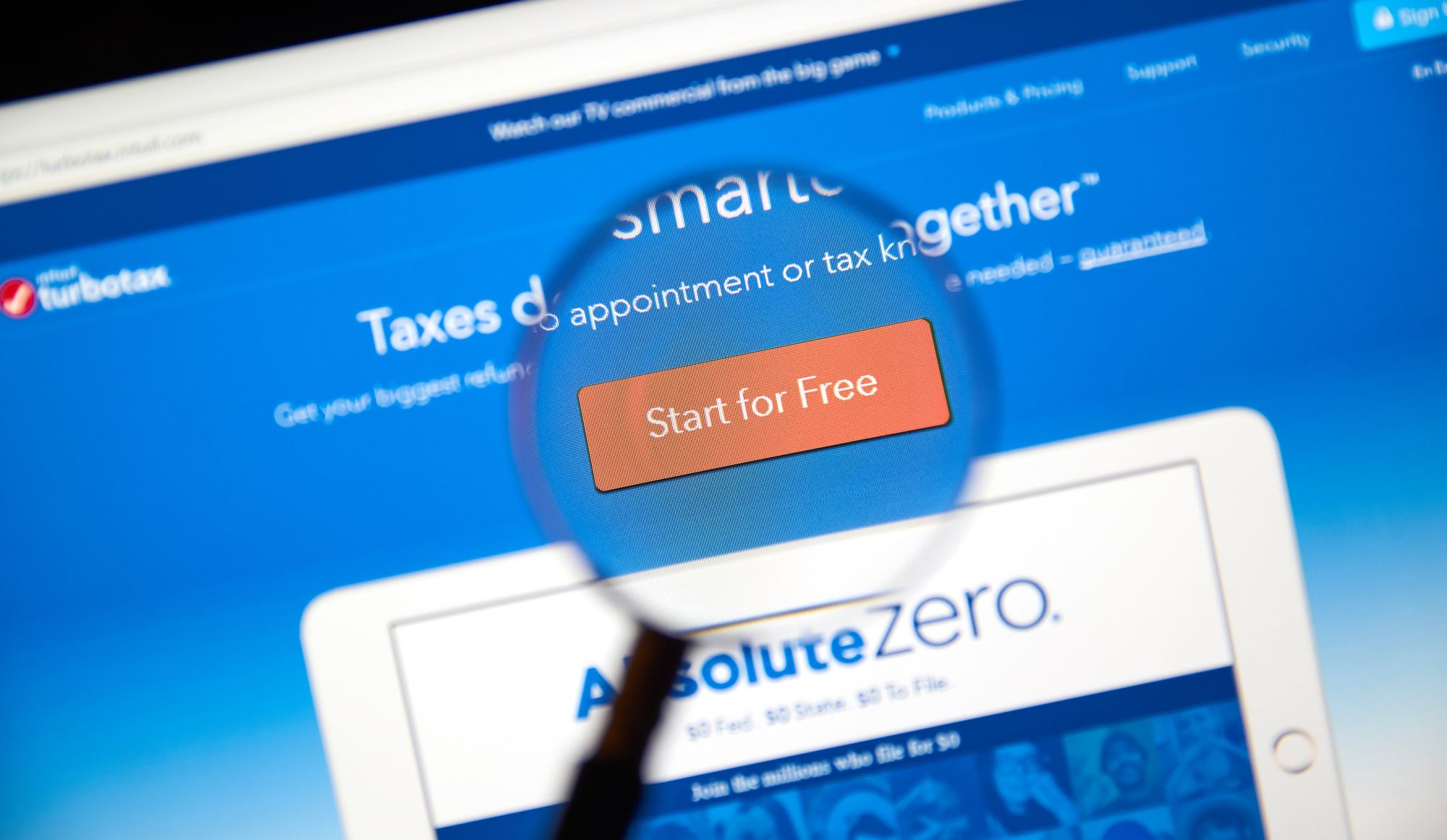TurboTax class action lawsuit saved from forced arbitration

UPDATE 2: On December 17, 2020, a federal judge rejected the proposed $40 million settlement between Intuit, the company behind TurboTax, and a group of consumers who sued the company for allegedly dissuading them from using the free version of TurboTax when they were eligible to use it.
UPDATE: On November 12, 2020, a class action lawsuit against TurboTax reached a $40 million settlement. The lawsuit alleged that the company falsely advertised its services as free.
A federal judge in California recently ruled that Intuit’s TurboTax customers are not bound by an arbitration clause in its terms of service, upholding a class-action lawsuit brought by customers who claim the tax preparation company falsely advertised that its services were free.
U.S. District Judge Charles R. Breyer stated in his order that the terms were too subtle to constructively communicate to customers each time they sign up for TurboTax that they agree to be bound by an arbitration agreement.
The judge considers that the hyperlink to the terms and conditions, although blue, is not underlined, which does not meet the “gold standard” for how the terms of service must be displayed to the user.
In addition, the judge notes that the notice on Intuit’s login and account recovery pages contains several confusingly similar hyperlinks. The links on both pages indicate that by clicking “Login” or “Continue,” users agree to be bound by Turbo’s Terms of Service, which contain the arbitration clause at issue in this case.
However, the judge notes that the Turbo Terms of Use are distinct hyperlinks that link to two different agreements, only the latter of which contains the arbitration agreement that the defendant seeks to enforce.
In addition, the judge considers that the confusing presence of two hyperlinks with almost identical names may have prevented the consumer from even realising the existence of the second hyperlink, regardless of whether the user clicked on the first one or not.
“A reasonable user might well find this provision confusing. He or she might not realize that the message contains a second hyperlink,” the court decision states.
The court also points out that the fact that only 0.55 percent of users clicked on the terms and conditions supports the argument that many users did not notice.
Based on these conclusions, the judge denied Intuit’s request for arbitration.
Plaintiffs Andrew Dohrman, Joseph Brougher and Monica Chandler allege that Intuit tricked consumers into paying for its tax preparation services when the free version was available to them.
The judge’s latest opinion said that Intuit and other tax preparation services entered into an agreement with the IRS in 2002 that allows low-income taxpayers and military members to file their taxes for free.
The agreement with the IRS requires Intuit and the other tax preparation services to offer a total of 70 percent of U.S. taxpayers the opportunity to file their taxes for free, according to the class action lawsuit filed in May 2019.
The TurboTax class action lawsuit alleges that Intuit allows free filing of state and federal tax returns for taxpayers who have an adjusted gross income below $34,000, are eligible for the Earned Income Tax Credit, or are active members of the armed forces with a gross income of $66,000 or less.
One of the plaintiffs in the case, Joseph Brougher, claims that as a college student he has a gross income of $6,000 per year and therefore qualifies for the free filing program.
He argues that he took the steps to prepare his tax return for free, but Intuit told him he had to pay $85.58 to file his return.
The plaintiffs also allege that fewer than 2.5 percent of eligible taxpayers actually use the program, largely due to Intuit’s deceptive practices in an attempt to dissuade lower-income taxpayers from using the free program instead of the paid program.
The plaintiffs allege that Intuit instead “misled” these customers to its paid services.
 “TurboTax has, in fact, gone to great lengths to protect the viability of its business by eliminating the threat of a free, government-sponsored program that would dramatically threaten industry profits, while at the same time actively refusing to fulfill its obligations under the IRS’s Free-Filing Agreement in order to maximize its own profits at the expense of the nation’s most vulnerable citizens,” TurboTax’s class action lawsuit states.
“TurboTax has, in fact, gone to great lengths to protect the viability of its business by eliminating the threat of a free, government-sponsored program that would dramatically threaten industry profits, while at the same time actively refusing to fulfill its obligations under the IRS’s Free-Filing Agreement in order to maximize its own profits at the expense of the nation’s most vulnerable citizens,” TurboTax’s class action lawsuit states.
The plaintiffs argue that Intuit violated that agreement by intentionally diverting qualified taxpayers from the “free filing” program and switching them to its free offerings instead.
According to the TurboTax class action lawsuit, the company accomplished this by separating its “Free File” website from its main website and then modifying the code on the “Free File” website so that it was not tracked by search engines like Google.
“According to the complaint, Intuit lured consumers with the promise of free filing, but then diverted them to paid offers, concealing the fact that filing was actually free,” the judge recently wrote.
Potential TurboTax class action members include: “All United States residents who were eligible to file their taxes for free under the IRS Free Filing Program for the 2018 tax season and met TurboTax’s eligibility requirements, but who were still charged money by TurboTax to file their tax returns.”
Did you file your taxes with Intuit TurboTax and thought it would be free? Leave a message in the comments section below.
The plaintiffs are represented by Daniel Girard, Jordan Elias and Simon Grille of Girard Sharp LLP and Norman E. Siegel, J. Austin Moore and Jillian Dent of Stueve Siegel Hanson LLP.
The Class action lawsuit over free tax return with TurboTax Is Brianna Sinohui et al. v. Intuit Inc., Case No. 5:19-cv-02546, in the U.S. District Court for the Northern District of California.



